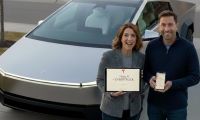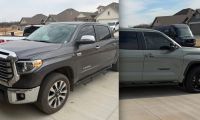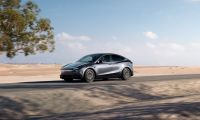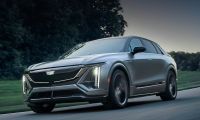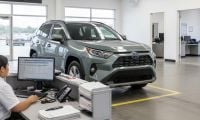As of now, a senior BYD executive has basically confirmed the existence of this deal: "… now we are good friends with Elon Musk because we are preparing to supply batteries to Tesla very soon", said Lian Yubo, executive vice president of BYD, during an interview with Kui Yingchun, host of Chinese broadcaster CGTN.
BYD, a famous world leader in sales of plug-in cars (electric and plug-in hybrids) - so far this year - is also one of the world's largest battery producers; in fact, it is very likely that in the short term it will end up even surpassing CATL as the leader in the sector: by April 2022, BYD was able to produce 4.19 GWh of LFP batteries, as compared to 3.05 GWh of its rival; which remains in first position thanks to the demand for other types of batteries, based on different chemistry.

BYD Blade batteries are basically LFP-type: they are characterized by a module-free CTP (Cell to Pack) design, being made up of a matrix of singular elongated cells (from 0.6 to 2.5 meters long) that are inserted into the pack. This optimized structure allows to improve the use of space, greatly increasing the volumetric density by an impressive 30%.
Tesla could actually use BYD Blade batteries in its – future - access model: their energy density of 140 Wh/kg and their cost (30% lower than other LFP batteries) make them in fact very competitive as to other options currently available on the market. According to BYD, its useful life is around 1.2 million kilometers in eight years of full use; in addition, they can withstand ultra-fast high-power charges without the need to resort to expensive cooling systems.
During the drilling-stress tests carried out during their development, these Blade batteries did not emit any smoke or fire, and their surface only reached temperatures of between 30 and 60º C (a very low figure if we compare it with conventional lithium batteries, which in the same tests reached between 200 and 400º C of surface temperature).
As part of the stress tests, BYD also crushed, folded, heated in a 300º C oven and overloaded by a 260% these Blade cells, which actually never caught fire or exploded. Therefore the company naturally places special emphasis on its high level of security. Although there is no official confirmation yet, rumors suggest that BYD's Blade batteries could be used in Tesla's future "Access Model" (Model C?), which has been widely rumored will be an electric compact with a starting price of $25,000, to be manufactured in China (Giga-Shanghai) for distribution worldwide.

As per Reuters sources, "… Chinese battery giant CATL (300750.SZ) is currently the sole supplier of LFP batteries to Tesla, which has been installing such batteries in cars manufactured in the Shanghai plant since 2020. Tesla disclosed that nearly half of the vehicles it produced in the first quarter were equipped with LFP batteries - a cheaper rival to the nickel-and-cobalt based cells that dominate in the West".
Source: Reuters
All images courtesy of Tesla Inc.
Nico Caballero is the VP of Finance of Cogency Power, specializing in solar energy. He also holds a Diploma in Electric Cars from Delft University of Technology in the Netherlands, and enjoys doing research about Tesla and EV batteries. He can be reached at @NicoTorqueNews on Twitter. Nico covers Tesla and electric vehicle latest happenings at Torque News.
Set as google preferred source







